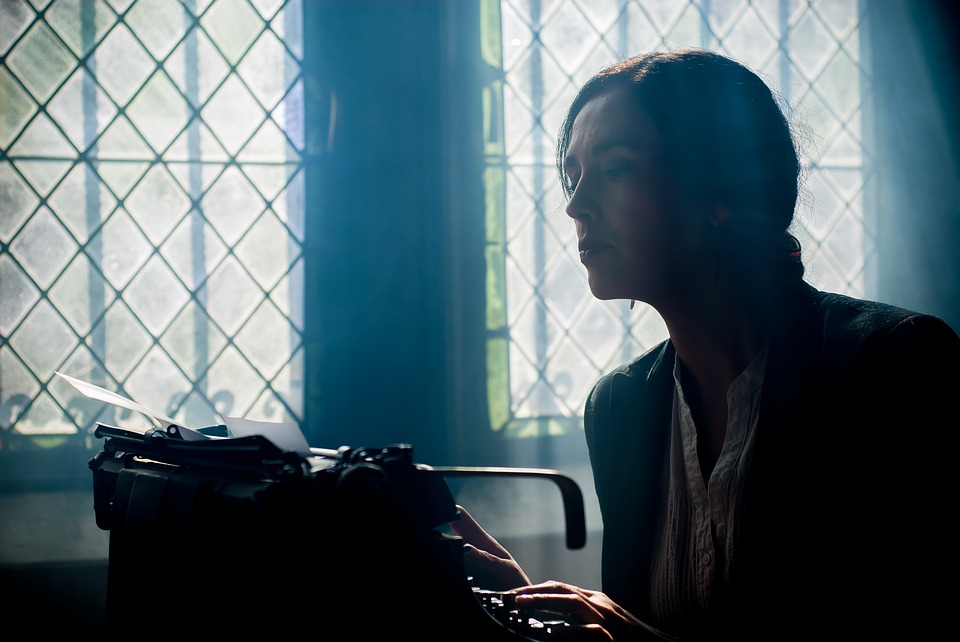Natalie Goldberg’s Top 13 Writing Tips
This past year, I’ve been on a hunt to find the best writing advice books. One book that has come up several times in my research is Writing Down the Bones by Natalie Goldberg.
Goldberg is a prolific author who has written over a dozen books, but her 1986 classic Writing Down the Bones remains her best-known work. To date, it has sold over one million copies.
Here are the top 13 lessons I learned from the book:
1. Dig down to your “first thoughts”
“[T]he aim is to burn through to first thoughts, to the place where energy is unobstructed by social politeness or the internal censor, to the place where you are writing what your mind actually sees and feels, not what it thinks it should see or feel.” -Natalie Goldberg
Society, parents, school, and work each exert a gravitational pull. Each of those forces pulls us toward standardization: this is how you should act, this is how you should think. Writers need to find a way to resist that gravitational pull because standardization is the enemy of writing.
The best writing is heartfelt, vulnerable, raw, and messy. Exceptional writers find the unvarnished truth. Rather than polishing the truth, they expose it.
The best writing happens through you. You are the conduit, and your goal is to get out of your own way. Turn off your automatic filter (the one planted inside every human), resist the gravitational forces pulling you toward standardization, and write what only you can write.
2. Use fear as your guide
“If something comes up in your writing that is scary or naked, dive right into it. It probably has lots of energy.” -Natalie Goldberg
The best stories are often those that cut open a vein — the ones that expose a vulnerable truth, say something that shouldn’t be said, or spelunk a topic that most writers would not explore.
For example, think about some of the stories you’ve stumbled across online that immediately sucked you in: relationship fails, political rants, people getting fired from their jobs, etc. Honest and heartfelt topics attract readers.
Write the truth — your truth — whatever that may be. Steer into your fear.
3. Free yourself of expectations
“Sit down with the least expectation of yourself; say, ‘I am free to write the worst junk in the world.’ You have to give yourself the space to write a lot without a destination. I’ve had students who said they decided they were going to write the great American novel and haven’t written a line since. If every time you sat down, you expected something great, writing would always be a great disappointment. Plus that expectation would also keep you from writing.” -Natalie Goldberg
Goldberg says her goal is to fill one notebook per month — irrespective of writing quality.
One of her favorite writing exercises is to free-write for anywhere from ten minutes to an hour. During that time, she keeps her hand moving and doesn’t stop to edit anything. She throws all standard conventions (grammar, spelling, punctuation) out the window and tries to “lose control” in her writing.
Your ego is the biggest impediment to your writing. If you’re too preoccupied with sounding good on paper, you’ll never begin writing. Get sloppy. Start writing and worry about cleaning it up later.
4. Learn as you go
“Don’t worry about your talent or capability: that will grow as you practice…If you want to write a novel, write a novel. If it’s essays you want or short stories, write them. In the process of writing them, you will learn how.” -Natalie Goldberg
The quote above is simultaneously liberating and horrifying.
Maybe you’ve been postponing starting your book because you think you don’t know enough yet. Instead, you’ve been “doing research” for months on end or “learning more about the craft” by reading writing advice books (or articles like this one!). It’s good to learn new things, but at some point, absorbing knowledge becomes a debilitating crutch.
Don’t lie to yourself by saying that you need to read another writing advice book to get started. Learning is admirable and necessary, but don’t let learning become your mechanism for procrastination.
5. Recognize that you are not your work
“Don’t identify too strongly with your work. Stay fluid behind those black-and-white words. They are not you. They were a great moment going through you. A moment you were awake enough to write down and capture.” -Natalie Goldberg
One of the reasons feedback is so difficult to hear is because we often associate what we’ve produced with who we are. But those two things are not the same. If we identify too closely with our work, we’ll struggle to learn from both our successes and our failures. Below are two examples.
Success example: you write a story that goes viral
- If you identify too strongly with that success…you’ll think that the X factor was YOU. You may believe that everything else you write will also go viral, setting you up for horrible disappointment.
- If you separate yourself from your work…you’ll ask yourself useful questions, like What did I do differently in this story that resonated with so many people? What can I learn from the success of this story? How can I replicate that success in the future?
Failure example: your first book sells ten copies…and your mom bought nine of them
- If you identify too strongly with that failure…you’ll jump to the conclusion that you aren’t cut out to be a writer. You may decide never to write another book.
- If you separate yourself from your work…you’ll reflect on why the book didn’t sell as well as you’d hoped. You will (hopefully) keep writing and approach your next book with more knowledge and revised expectations.
6. Notice the texture of everyday events
“When you are not writing, you are a writer too. It doesn’t leave you. Walk with an animal walk and take in everything around you as a prey. Use your senses as an animal does. Watch a cat when he sees something moving in the room. He is perfectly still, and at the same time, his every sense is alive, watching, listening, smelling. This is how you should be when you are in the streets.” -Natalie Goldberg
In her book Bird by Bird, author Anne Lamott says something similar: “One of the things that happens when you give yourself permission to start writing is that you start thinking like a writer. You start seeing everything as material.”
Writers find inspiration EVERYWHERE. Every life experience turns the gem and exposes a new facet of humanity that you can capture within a future story. But to capture those stories, you need to be looking.
Your goal is to truly see what’s going on around you, then use those insights to inform your writing. Many writers carry a small notebook wherever they go and use it to record snippets of overheard conversation, new ideas that come to mind, and stories to use in future pieces.
7. Become a better listener
“Writing, too, is ninety percent listening. You listen so deeply to the space around you that it fills you, and when you write, it pours out of you…If you can capture the way things are, that’s all the poetry you’ll ever need.” -Natalie Goldberg
Last year, I interviewed a recruiter friend of mine for a management book I was writing. Her best interviewing advice? Listen for what people don’t say. She had trained herself to listen so deeply that she could catch what job candidates wanted to skip over in their past job experience, which helped her know when and where to ask follow-up questions.
Your job as a writer is similar. You must become an exceptional listener and observer of the world around you. Eavesdrop on conversations at the coffee shop to learn how to write better dialogue. Listen to the snowy silence of winter and the chirping buzz of spring to improve your writing of nature and poetry.
8. Give things the dignity of their names
“Be specific. Don’t say ‘fruit.’ Tell what kind of fruit — ‘It is a pomegranate.’ Give things the dignity of their names…It is much better to say ‘the geranium in the window’ than ‘the flower in the window.’ ‘Geranium’ — that one word gives us a much more specific picture. It penetrates more deeply into the beingness of that flower.” -Natalie Goldberg
In 1994, President Ronald Reagan announced that he had been diagnosed with Alzheimer’s disease. Little did he know, his public speeches already indicated that he may have been on that path. Alzheimer’s researchers later found that Reagan had begun using unspecific words (like “thing” or “person”) and repetitive language, which researchers now believe could be a bellwether of early-onset Alzheimer’s.
Specificity suggests a sharp mind. The English language is vast and contains thousands of words from which you can convey precisely what you want to say in any situation. Invest the time to find the right word. Paint bright, bold, specific landscapes in the minds of your readers.
9. Build off others’ work
“We build on what came before us, even if our writing is a reaction to it or we try to negate the past. We still write with the knowledge of what’s at our backs.” -Natalie Goldberg
It would be ignorant and untruthful to claim that your work is 100 percent original. It’s not. No one’s work is.
Art builds off other art. Every writer was first a reader who enjoyed someone else’s work and was inspired to birth their own creation. Incorporate others’ thoughts and ideas into your work while giving credit where it’s due. Author Austin Kleon calls this “stealing like an artist.”
Think of your work as a mosaic of all your past influences: writers, musicians, artists, marketers, public speakers, you name it. Honor those influences by building off their work.
10. Teach your readers what it’s like to be you
“All writers, at some level, want to be known. That’s why they speak. Here is a chance to bring your reader deeper into your heart. You can explain with deep knowledge what it means to be a Catholic, a man, a southerner, a black person, a woman, a homosexual, a human being. You know it better than anyone else. In knowing who you are and writing from it, you will help the world by giving it understanding.” -Natalie Goldberg
One of the best ways to change someone’s misconceptions is by sharing a story that helps the person see the world in a new way. Writing gives you the power to do just that.
From learning what it feels like to have imposter syndrome to explaining the stresses of working in retail, you can use stories to help readers see snippets of your world.
11. Suppress your internal editor
“It is important to separate the creator and the editor or internal censor when you practice writing, so that the creator has free space to breathe, explore, and express.” -Natalie Goldberg
It’s tempting to self-edit as you write, but self-editing prevents you from tapping into the “first thoughts” that Goldberg says are necessary for writing something of substance.
“Naturally, once you begin writing you might be surprised where your mind takes the topic,” says Goldberg. “That’s good. You are not trying to control your writing. You are stepping out of the way. Keep your hand moving.”
Begin with a free-flowing pen. Let your ideas fly, and leave your editor hat on the shelf for a while. Don’t put it on too soon or you’ll dampen your creativity. You’ll have time to be an editor later — after you’ve finished the first draft of your piece.
12. Write with confidence
“Writing is the act of burning through the fog in your mind. Don’t carry the fog out on paper. Even if you are not sure of something, express it as though you know yourself. With this practice you eventually will.” -Natalie Goldberg
No one has all of the answers. Not you. Not me. Not any other writer out there. But that doesn’t mean that you should hedge your writing with numerous qualifiers like “I think,” “probably,” “maybe,” or “it seems like…”
Write with confidence and poise. Don’t hedge. Your readers are coming to you because they want to hear your perspective on something. Give it to them.
13. Continue under all circumstances
“[Y]ou can’t rest on your success. Or your failure. ‘I have written something wonderful.’ Good, but it is a new moment. Write something else. Do not be tossed away by your achievements or your fiascos. Continue under all circumstances.” -Natalie Goldberg
It seems that every writing advice book contains a passage like the one above, urging young writers not to give up, to continue pushing.
Writing is undeniably difficult. It will always be easier to watch Netflix or read a book than it will be to write. Consumption is easier than creation. But there’s something wonderful about creating something from nothing — from writing a story, then seeing that story bless the minds and hearts of your readers. That’s a magical feeling.
Persist. Even when the road gets difficult, persist. When you feel like your idea tank is empty, persist. When you question whether your work is good enough, persist. The world needs you and your creativity.
If you’ve enjoyed these tips, check out Natalie Goldberg’s book Writing Down the Bones. It contains many other insights for improving as a writer.
Happy writing!






